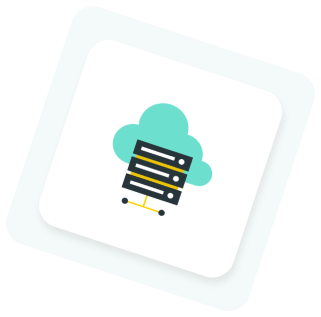In an industry full of startups making partnerships and new technologies emerging, SaaS NDAs are a necessary part of any SaaS negotiation process. While they’re ubiquitous and pretty much standard protocol across any industry, the need for NDA for SaaS can’t be underscored enough.
NDAs for SaaS business aren’t just about protecting information pertaining to development and software, they’re also about sales, adoption numbers, customer lists, and other key metrics.
Below we cover everything you need to know about what to look for in a SaaS NDA.
Why do SaaS companies provide NDAs to their clients?
The primary reason that SaaS companies require NDAs with their clients is mutual protection. Especially for NDA SaaS startups, data, insights, and analytics are everything to your business. It benefits both parties to ensure their sensitive information will stay confidential throughout the negotiation or integration process.
For new SaaS companies, your methodology for product and feature adoption can say a lot about why an app or solution is working. You can gain valuable adoption metric insights that reveal what influences app adoption, strategies to improve adoption, where your clients or customers fall on an adoption curve, and more.
If you have an NDA or software nondisclosure agreement, you can prevent competitors or prospecting authorities from attempting to gain access to your documentation by invoking their rights through the Freedom of Information Act. One way public authorities can gain access to your documentation is through an FOI request, which you can block through an NDA.

What is protected under an NDA?
Let’s break down what most NDAs and NDA for source code agreements will protect you from. It’s important to note that what is protected will depend largely on the specific NDA, but you can generally expect it to protect:
- Any information provided as part of the sales process.
- Price lists.
- Functional descriptions.
- Third party allowances.
- Confidential information definition.
What is “confidential information” in an NDA?
Any and all information that you provide in an NDA can be considered “confidential information.” Of course, you want to make some of the most important information–sales numbers, your methods and processes, software development details, functionality of your technology, and other key documents that you wouldn’t want competitors or third-parties to see–clearly confidential, but you can set the terms of your own agreement as you see fit.

Who is able to access confidential information?
Your NDA should clearly and specifically define who is able to access confidential information. If the party you're working with requests that a team or set of employees within their organization gain access to your documents or software, that should be stated in the NDA.
While these are some of the most essential and general clauses/items your NDA should cover, there’s a long list of clauses that you can include to protect yourself and your business. We recommended working with a legal firm or SaaS management/procurement team to benefit from expert legal advice.
The legalities and nuances of exchanging information with a party can be complicated, and taking a third-party management team can help simplify the process and ensure you’re doing everything you can for the safest and most effective exchanges.
SLA vs. NDA
A service level agreement (SLA) has some notable differences from an NDA. While an NDA will ensure that both parties keep sensitive information and data confidential, an SLA defines the expectations and level of quality that a client or customer receives from a SaaS vendor.
SLAs ensure that vendors uphold a certain level of reliability and quality when they provide services to you and your customers. Conversely, this also means that clients/customers can’t break their own agreements within a contract by asking for something that the SaaS provider never guaranteed or offered. SLAs, like NDAs, are mutually beneficial agreements that help both parties become aligned in their responsibilities and expectations.
Both types of agreements are important and tedious processes, and having a procurement team in your corner, like Sastrify, can help negotiate for you and enable you to get the most out of your agreements/contracts.

How Sastrify can help
Sastrify is dedicated to taking the hassle out of the SaaS management process. We help clean stack, reduce waste, optimize usage, and gain important insights from SaaS analytics so you can refine your SaaS structure.
On top of that, we’ll negotiate your contracts for you, making sure all documentation is safe, secure, and in your best interest.
Click here to learn more about how Sastrify can help stay on track with your SaaS landscape.
















